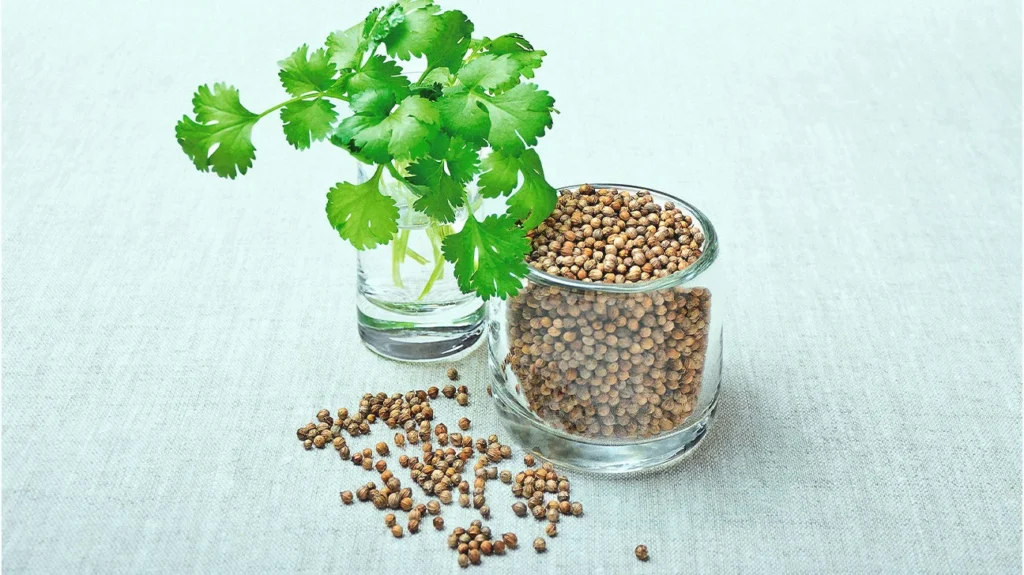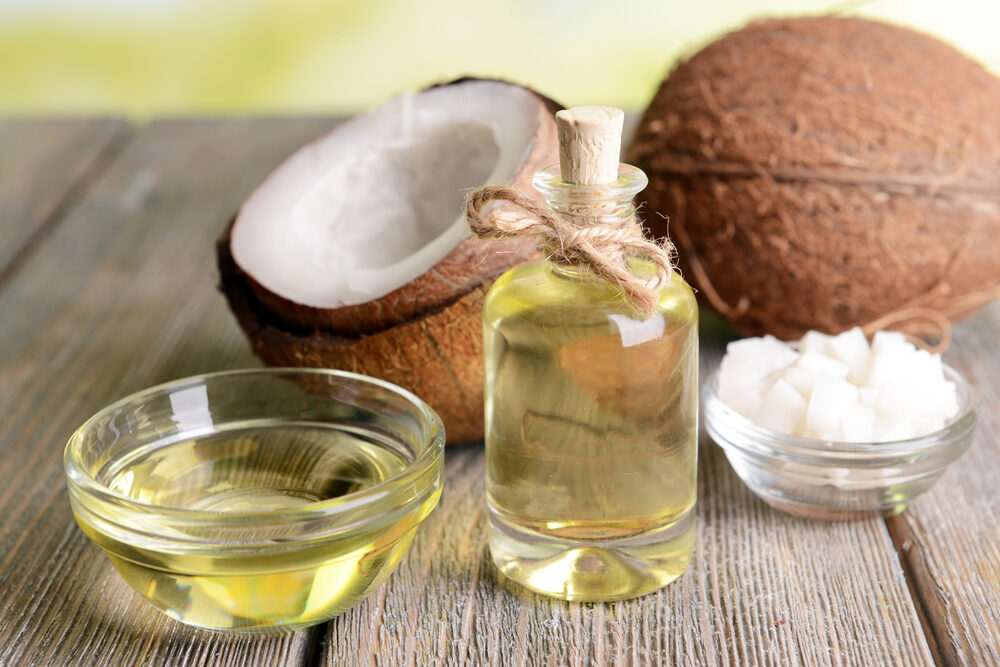Coriander, also known as cilantro or Chinese parsley, is a versatile herb used in cuisines around the world. While its leaves are commonly used as a garnish, its seeds serve as a popular spice. Coriander offers an array of health benefits due to its rich nutritional profile, antioxidants, and bioactive compounds.
Nutritional Profile of Coriander (Per 100g of Leaves and Seeds)
Coriander Leaves (Fresh)
| Nutrient | Amount |
|---|---|
| Calories | 23 kcal |
| Protein | 2.1 g |
| Carbohydrates | 3.7 g |
| Dietary Fiber | 2.8 g |
| Fat | 0.5 g |
| Vitamin C | 27 mg (45% DV) |
| Vitamin K | 310 µg (388% DV) |
| Vitamin A | 337 µg (37% DV) |
| Folate | 62 µg (16% DV) |
| Potassium | 521 mg (11% DV) |
| Calcium | 67 mg (7% DV) |
| Magnesium | 26 mg (6% DV) |
Coriander Seeds
| Nutrient | Amount |
|---|---|
| Calories | 298 kcal |
| Protein | 12.4 g |
| Carbohydrates | 54 g |
| Dietary Fiber | 41.9 g |
| Fat | 17.8 g |
| Vitamin C | 21 mg (35% DV) |
| Calcium | 709 mg (71% DV) |
| Magnesium | 330 mg (83% DV) |
| Iron | 16.3 mg (90% DV) |

Health Benefits of Coriander
1. Rich Source of Antioxidants
Coriander contains antioxidants such as quercetin, kaempferol, and tocopherols that help combat oxidative stress, reduce inflammation, and protect cells from damage.
2. Improves Digestion
- Coriander leaves and seeds aid in digestion by stimulating enzyme production and increasing digestive juices.
- The dietary fiber content helps prevent constipation and promotes gut health.
3. Supports Heart Health
- Potassium and magnesium in coriander help regulate blood pressure.
- Antioxidants in coriander may reduce LDL (bad cholesterol) levels and increase HDL (good cholesterol).
4. Enhances Skin Health
- Coriander’s antimicrobial and anti-inflammatory properties can help treat skin conditions such as acne, eczema, and rashes.
- Vitamin C promotes collagen production and protects against UV damage.
5. Regulates Blood Sugar Levels
- Coriander seeds have been shown to stimulate insulin secretion and lower blood sugar levels, making them beneficial for diabetics.
6. Boosts Immune System
- The high content of Vitamin C, Vitamin A, and Vitamin K enhances the immune response and helps the body fight infections.
7. Supports Bone Health
- Calcium, magnesium, and phosphorus in coriander contribute to bone strength and density, reducing the risk of osteoporosis.
8. Detoxifies the Body
- Coriander is known to bind to heavy metals like lead and mercury in the body and assist in their excretion, promoting detoxification.
9. Improves Sleep and Reduces Anxiety
- The bioactive compounds in coriander have mild sedative effects that can help alleviate anxiety and improve sleep quality.
10. Aids Weight Loss
- Low in calories and high in fiber, coriander can be included in weight management diets.
- It also promotes efficient fat metabolism.
How to Incorporate Coriander into Your Diet
- Fresh Leaves: Use as a garnish for soups, salads, and curries.
- Seeds: Add roasted coriander seeds to spice blends or use them in teas for digestion.
- Powder: Incorporate ground coriander into marinades, sauces, and baked goods.
- Juice: Blend coriander leaves with lime and water for a refreshing detox drink.
Precautions and Side Effects
- Allergic Reactions: Some people may experience allergic symptoms such as skin rashes or respiratory discomfort.
- Overuse: Excessive consumption may lead to gastrointestinal discomfort.
- Pregnancy: Coriander should be consumed in moderation during pregnancy due to its potential uterine-stimulating effects.
Coriander is a powerhouse of nutrients and health benefits, making it an excellent addition to a balanced diet. Its versatility in cooking, coupled with its medicinal properties, ensures that this humble herb is much more than a mere garnish.





